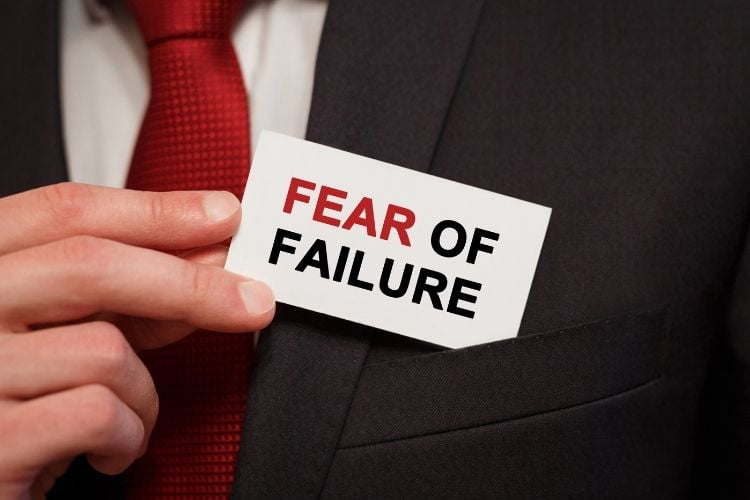Fear of failure is a profound emotion that affects many people’s lives, preventing them from fully realizing their potential. However, it is possible to overcome this fear and build self-confidence. Fear of failure can stem from past experiences, societal pressures, or perfectionism.To conquer the fear of failure, it’s crucial to first understand its root cause. By examining and reflecting on thestrategies in our content, you can establish a stronger mental foundation and take significant steps towards overcoming the fear of failure.
What is Fear of Failure?
Also known as atychiphobia, fear of failure is when an individual fears the possibility of failing, which affects them and prevents them from fully utilizing their potential.This fear can make it difficult for a person to take risks, try new things, or take the necessary steps to achieve their goals. Fear of failure can manifest itself through the following symptoms:
- Avoiding starting or completing projects
- Perfectionism
- Procrastination
- Low self-confidence
- Feeling inadequate
- Excessive worry or stress
Understanding these aspects and addressing them through targeted strategies can help individuals move beyond fear and towards a more confident and successful life.

Why Do We Fear Failure?
When considered from a psychological perspective, the fear of failure can stem from many causes, which are personal, social, and cultural in nature. Here are the common reasons for fear of failure:
Social Expectations
The high importance placed on success by society, family, and peers can increase the fear of failure; people worry about not meeting others’ expectations.
Perfectionism
An individual’s high expectations of themselves and a tendency towards perfectionism can make accepting failure difficult.
Self-doubt
Low self-esteem and feelings of inadequacy can weaken one’s belief in their own abilities and fuel the fear of failure.
Past Experiences
Past failures, traumatic experiences, or negative feedback can heighten the tendency to fear failure.
Overly Critical Environment
Individuals who are constantly criticized or judged may fear trying new things and taking risks.
Result-Focused Thinking
Constantly focusing on outcomes and ignoring the process can make failure seem more frightening.
Need for Social Approval
The desire to be accepted and appreciated by others can prioritize avoiding failure.
Financial and Career Risks
Failure can lead to financial losses or negative career outcomes, thereby increasing the fear.
Understanding these causes helps to comprehend how an individual experiences fear of failure and how they can overcome it. A supportive environment, personal development, and professional help offer effective strategies for coping with fear of failure.

The Effects of Fear of Failure on Our Lives
Fear of failure can have negative effects on many areas of an individual’s life. Here are some common effects of this fear:
Career and Education
Fear of failure can cause individuals to avoid taking risks in their careers or educational lives, preventing them from fully realizing their potential. This situation can result in missed opportunities for promotions, new projects, or further education.
Personal Development
It creates a reluctance to learn new skills or develop hobbies. Individuals may avoid new experiences due to fear of failure.
Perfectionism
Extreme perfectionism can lead to constantly avoiding making mistakes and thus struggling to complete projects. This situation negatively affects time and stress management.
Relationships
Fear of failure also affects social relationships. Individuals may avoid meeting new people or forming in-depth relationships due to fear of rejection or criticism.
Mental Health
Fear of failure lowers individuals’ motivation and self-confidence. A lack of self-confidence weakens the belief in achieving goals and can leave a person inactive.
Decision Making
It creates hesitation and indecision in decision-making processes. Individuals may avoid making decisions due to fear of making wrong choices or the consequences of those decisions.



